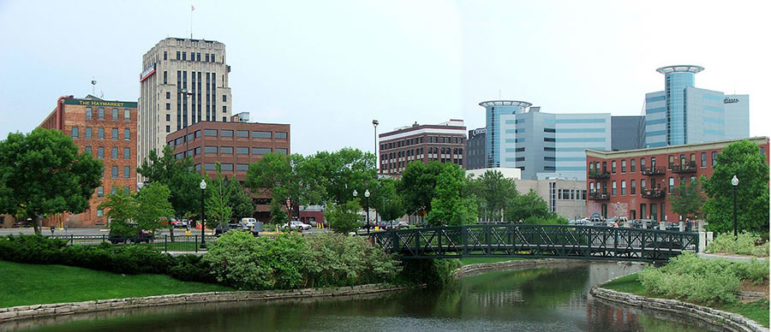
NPQ has written repeatedly about the dangers of private money in public systems in terms of its potential to undercut democratic decision-making. But, some local governments, starved for funds, are less interested in the potential for a Boston Tea Party–type meltdown among the populace and more interested in taking care of what feel like overwhelming immediate problems. In Michigan, where philanthropy got so deeply involved in Detroit, the seeds have already been planted.
The city of Kalamazoo, Michigan recently approached two local philanthropists about their financial struggles—and the philanthropists responded positively. As previously reported in NPQ, local residents William D. Johnston, who chairs a private wealth management company, and retired drug company CEO William Parfet proposed the creation of a foundation to support the city and pledged $70 million over the next three years to help solve many municipal finance issues in Kalamazoo.
The MOU was released earlier this week by the city to set up the proposed Kalamazoo Foundation for Excellence for future decisions. It is not a binding legal document, and city commissioners will have the opportunity to discuss it at their work session scheduled for October 24th. (See the full Memorandum here.)
Under the MOU, the city will create a city-controlled fund to receive the initial donation, which will aid in the creation of the nonprofit foundation by August 31, 2017. Approximately $20 million of the original $70 million will be allocated directly to the 2017 City budget before the foundation is officially formed. The rest of the donation will then go toward developing a budget through 2019 that incorporates a $12 million property tax—a decrease of more than 37 percent from the current rate.
Sign up for our free newsletters
Subscribe to NPQ's newsletters to have our top stories delivered directly to your inbox.
By signing up, you agree to our privacy policy and terms of use, and to receive messages from NPQ and our partners.
This plan also strives to eliminate the city’s deficit and fund key investments, including allocating $10 million each fiscal year toward “aspirational projects” focused on a variety of improvements, including youth development, poverty reduction, capital investments, and more. It’s not yet outlined publicly as to how these projects will be chosen or who will manage them, but $10 million is a significant amount of money to devote to programs each year in a community of 75,000 people.
In addition to the original investment from Johnston and Parfet, city officials hope to generate support and contributions for the foundation, with a goal of having it endowed with $500 million by June 30, 2019. City Manager Jim Ritsema, who drafted the MOU and helped court the initial donor investment, posited that the property tax cuts initiated with the original donation may draw more business to Kalamazoo, which would hopefully mean more contributions to the foundation as well.
Some City Commissioners have remained cautious even with the MOU now drafted. Among their concerns is that allowing private money to fund public services may lead to donors seeking influence over public programs and policies.
The governing structure for the Foundation for Excellence has not been established yet, but officials asked Council of Michigan Foundations President and CEO Rob Collier to present recommendations on the organization of the foundation. He suggested having a board comprising at least seven members, some of which could be donors or city officials.
This whole endeavor seems to be something of a poster child for potential plutocracy but we would love to hear your thoughts.—Angie Wierzbicki












